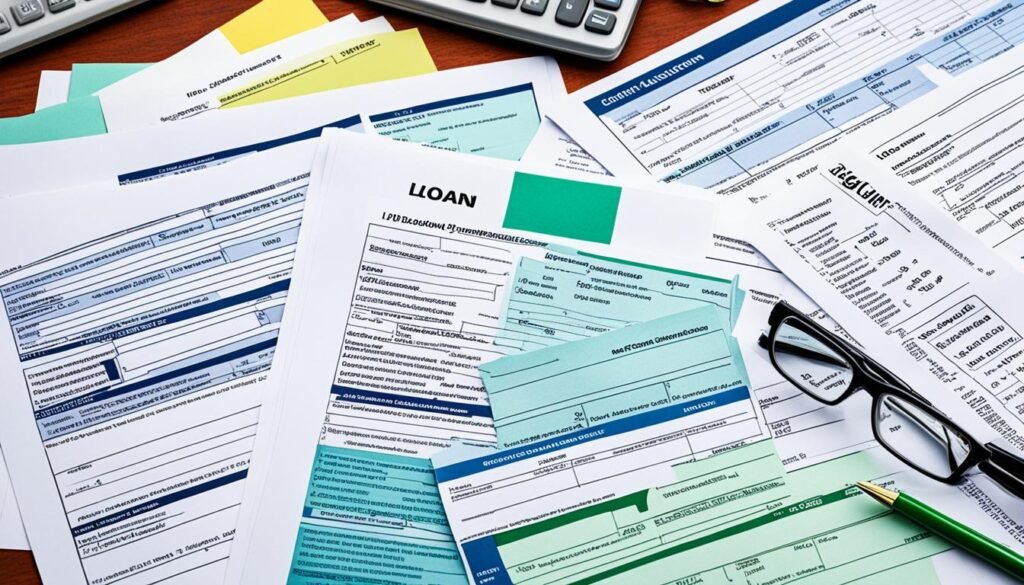Loan Options For Self-employed The rise of self-employment has been a transformative trend, as entrepreneurs, freelancers, and small business owners carve out their own paths. In the United States, personal loans for self-employed individuals have become a valuable resource for business expansion, unexpected expenses, or personal needs.
Self-employed individuals may require financing for a variety of reasons, including business expansion, working capital and cash flow management, equipment and asset acquisition, debt consolidation and refinancing, emergency expenses, education and training, investment opportunities, cash flow gaps, starting a new business, and personal expenses.
Lenders consider various eligibility criteria when providing personal loans to self-employed individuals, such as age, business vintage, credit score and credit history, income stability and annual income, business profitability and tax returns, debt-to-income ratio, collateral, and the need for a co-applicant or guarantor.
Key Takeaways
- The rise of self-employment has led to an increased demand for personal loans among entrepreneurs, freelancers, and small business owners.
- Self-employed individuals may require financing for business expansion, working capital, equipment, debt consolidation, and various personal and professional needs.
- Lenders evaluate factors like credit score, income stability, business profitability, and collateral when providing personal loans to self-employed borrowers.
- Understanding the eligibility criteria and available loan options is crucial for self-employed individuals seeking financing.
- Careful financial planning, including budgeting and building an emergency fund, can improve self-employed individuals’ chances of securing personal loans.
Understanding the Financial Needs of Self-Employed Individuals
As self-employment continues to rise in popularity, it’s crucial for entrepreneurs, freelancers, and small business owners to understand the various financial needs they may face. From business expansion and growth to working capital and cash flow management, self-employed individuals often require tailored financial solutions to support their unique business and personal circumstances.
Business Expansion and Growth
Self-employed individuals may need financing to fuel their business expansion and growth, such as opening a new location, increasing inventory, or investing in marketing and advertising campaigns. Access to the right financing can help these individuals capitalize on opportunities and drive their businesses forward.
Working Capital and Cash Flow Management
Maintaining a healthy cash flow can be a challenge for self-employed individuals, especially when their income is irregular. Personal loans can serve as a valuable source of working capital to cover day-to-day expenses and keep the business running smoothly during lean periods.
Equipment and Asset Acquisition
Depending on the nature of their work, self-employed individuals may need to purchase or upgrade equipment, tools, or software to improve their productivity and competitiveness. Securing financing for these asset acquisitions can be crucial for the success of their business.
Debt Consolidation and Refinancing
Self-employed individuals may have accumulated multiple debts, including credit card balances or high-interest loans. Taking out a personal loan with a lower interest rate can help them consolidate these debts, making them easier to manage and potentially saving them money in the long run.
Loan Options For Self-employed

While most personal loans in the United States cater to the needs of salaried individuals, there are specific loan options available for self-employed borrowers. These personal loans for self-employed individuals can be utilized for a wide range of purposes, including business expansion, working capital management, equipment purchases, debt consolidation, emergency expenses, education and training, investment opportunities, addressing cash flow gaps, starting a new business, and even personal expenses.
Personal Loans for Self-Employed
Self-employed individuals in the United States can explore personal loan options that are tailored to their unique financial requirements. These personal loans for self-employed borrowers often offer flexible repayment terms, competitive interest rates, and various loan amounts to accommodate the diverse needs of entrepreneurs, freelancers, and small business owners.
Business Loans and Lines of Credit
In addition to personal loans, self-employed individuals may also consider business loans and lines of credit to finance their professional endeavors. These specialized financing options can provide the necessary capital for business expansion, working capital management, equipment acquisition, and other operational expenses, allowing self-employed borrowers to grow and sustain their enterprises.
Home Equity Loans and HELOCs
For self-employed individuals who own a home, home equity loans and home equity lines of credit (HELOCs) can be viable loan options. These secured loan products allow borrowers to leverage the equity in their property to access funds for a variety of purposes, including debt consolidation, business investments, or personal financial needs.
Qualifying for a Self-Employed Loan

When seeking a personal loan as a self-employed individual in the United States, lenders consider several key factors to determine eligibility. These criteria include the applicant’s age, business vintage, credit score, income stability, annual income, business profitability, income tax returns (ITR), debt-to-income ratio, collateral, and the potential need for a co-applicant or guarantor.
Credit Score and Credit History
A good credit score is essential for loan approval, as lenders use it to assess the applicant’s creditworthiness. A higher credit score improves the chances of loan approval and may result in better interest rates. Lenders closely examine the applicant’s credit history to gauge their financial responsibility and repayment capacity.
Income Verification and Tax Returns
Lenders want to see a consistent income stream from self-employed applicants and often require income tax returns (ITR) for the last 2-3 years to demonstrate their income stability. This documentation helps lenders evaluate the applicant’s financial standing and ability to make regular loan payments.
Business Stability and Profitability
Lenders may also assess the stability and profitability of the applicant’s business to gauge their repayment capacity. A profitable business is generally seen as less risky, increasing the chances of loan approval. Lenders want to ensure that the self-employed applicant has a stable and sustainable source of income to make timely loan repayments.
Self-Employed Personal Loan Options

Self-employed individuals in the United States have access to a variety of personal loan options, including those from online lenders for self-employed borrowers, traditional bank loans for the self-employed, and peer-to-peer lending platforms. These loan alternatives can provide the necessary funding for a range of financial needs, from business expansion and working capital management to equipment purchases and debt consolidation.
Online Lenders for Self-Employed Borrowers
Many online lenders for self-employed borrowers in the United States offer unsecured personal loans with competitive interest rates and flexible repayment terms. These lenders often have a more streamlined application process and can provide faster funding compared to traditional financial institutions. Some examples of reputable online lenders catering to self-employed individuals include:
| Lender | Interest Rate | Loan Amount | Loan Term |
|---|---|---|---|
| HDFC Bank | 10.50%- 21.45% | Up to $40,000 | 12-60 months |
| Bajaj Finserv | 10-30% | Up to $5,000 | 12-96 months |
| DBS Bank | 10.99%-23.99% | $25,000- $15,000 | 12-60 months |
| YES Bank | From 10.99% | $1-$40,000 | 12-60 months |
| moneyview | From 15.96% | $5,000- $5,000 | 12-60 months |
Traditional Bank Loans for the Self-Employed
In addition to online lenders for self-employed borrowers, some self-employed individuals in the United States may prefer to obtain personal loans from traditional banks. These traditional bank loans for the self-employed often require more detailed documentation and underwriting, but they can provide longer loan terms and potentially lower interest rates for qualified applicants.
Peer-to-Peer Lending Platforms
Peer-to-peer lending platforms have also emerged as a viable option for self-employed individuals seeking personal loans. These platforms connect borrowers directly with individual lenders, often offering a more streamlined application process and competitive rates compared to traditional financial institutions.
When exploring personal loan options, self-employed individuals in the United States should carefully evaluate the interest rates, loan amounts, repayment terms, and eligibility requirements of each lender to find the solution that best fits their unique financial needs and circumstances.
Business Loan Alternatives for the Self-Employed

While personal loans can be a valuable financing option for self-employed individuals, there are also other loan alternatives available in the United States. These include small business administration (SBA) loans and alternative lenders and fintech solutions.
Small Business Administration (SBA) Loans
The U.S. Small Business Administration (SBA) offers various loan programs designed to support small businesses, including those owned by self-employed individuals. SBA loans typically feature competitive interest rates, longer repayment terms, and more favorable eligibility criteria compared to traditional bank loans. Self-employed borrowers can explore SBA 7(a) loans, SBA Express loans, and SBA Microloan programs to finance their business needs.
Alternative Lenders and Fintech Solutions
In addition to traditional banking institutions, self-employed individuals can also seek financing from alternative lenders and fintech solutions. These non-bank lenders often utilize technology and innovative underwriting methods to provide faster and more flexible loan options for self-employed borrowers. Examples of alternative lenders and fintech solutions include online marketplaces, peer-to-peer lending platforms, and specialized business financing providers.
Secured Loan Options for Self-Employed Individuals

For self-employed individuals in the United States, secured loan options can provide access to larger amounts of financing compared to unsecured personal loans. Two popular secured loan options include home equity loans and lines of credit, as well as asset-based lending and equipment financing.
Home Equity Loans and Lines of Credit
Self-employed individuals with significant home equity can leverage it to secure financing through home equity loans or home equity lines of credit (HELOCs). These types of secured loans typically offer lower interest rates and longer repayment terms compared to other loan options. The home serves as collateral, allowing self-employed borrowers to access larger loan amounts based on the equity in their property.
Asset-Based Lending and Equipment Financing
Another option for self-employed individuals is asset-based lending or equipment financing. These secured loans use the borrower’s business assets, such as inventory, accounts receivable, or equipment, as collateral. This can be particularly beneficial for self-employed individuals who have limited personal assets or a less-than-ideal credit profile, as the focus is on the value of the business assets rather than just the individual’s creditworthiness.
| Loan Type | Interest Rates | Loan Amounts | Collateral Requirements |
|---|---|---|---|
| Home Equity Loans and HELOCs | typically lower than unsecured loans | based on home equity | primary residence or other real estate |
| Asset-Based Lending | can vary based on asset type and value | based on the value of business assets | inventory, accounts receivable, equipment |
| Equipment Financing | can be lower than other business loans | based on the value of the equipment | the equipment being financed |
Securing a loan with collateral can provide self-employed individuals in the United States with access to larger loan amounts and potentially more favorable terms. However, it’s essential to carefully consider the risks and potential consequences of using personal or business assets as collateral before applying for a secured loan.
Preparing for the Loan Application Process

Before applying for a personal loan, self-employed individuals in the United States should gather the necessary documentation and paperwork requirements to increase their chances of approval. This includes key documents like KYC (Know Your Customer) proofs, business registration documents, income tax returns (ITR) for the last 2-3 years, and bank statements for the past 6-12 months.
Documentation and Paperwork Requirements
The documentation needed for a self-employed loan application typically includes proof of identity and residence, such as a driver’s license or utility bills. Self-employed borrowers should also be prepared to provide business registration documents, including their GST (Goods and Services Tax) registration. Additionally, lenders often require the applicant’s income tax returns (ITR) for the last 2-3 years to verify their income stability and business profitability.
Improving Your Credit Score and Financial Profile
In addition to gathering the necessary documents, self-employed individuals should focus on improving their credit score and overall financial profile to enhance their chances of loan approval. This may involve monitoring and maintaining a good credit history, reducing outstanding debts, and demonstrating a consistent and reliable income stream. By taking proactive steps to strengthen their financial standing, self-employed borrowers can position themselves as attractive candidates for personal loan lenders.
Managing Finances as a Self-Employed Individual

As a self-employed individual, maintaining a healthy cash flow and managing your finances can be a constant challenge. Irregular income streams and unpredictable expenses require careful budgeting and cash flow management strategies to ensure your business and personal finances remain stable.
Budgeting and Cash Flow Management Strategies
One of the key steps in managing your finances as a self-employed individual is to develop a comprehensive budget. This involves tracking your income, expenses, and savings goals to create a realistic plan for managing your money. By closely monitoring your cash flow, you can identify areas where you can cut costs, optimize spending, and ensure that you have the necessary funds to cover your business and personal obligations.
Building an Emergency Fund
In addition to budgeting and cash flow management, it is crucial for self-employed individuals to build an emergency fund. Unexpected expenses, such as medical emergencies, equipment failures, or market downturns, can quickly disrupt your business and personal finances. By setting aside a portion of your income into a dedicated emergency fund, you can create a financial cushion to help you weather unexpected storms and maintain the stability of your self-employed career.
Alternative Financing Options for the Self-Employed
In addition to traditional personal loans, self-employed individuals have access to alternative financing options that can provide additional flexibility and opportunities. Two such options worth exploring are crowdfunding and peer-to-peer lending, as well as angel investors and venture capital.
Crowdfunding and Peer-to-Peer Lending
Crowdfunding platforms allow self-employed individuals to raise funds from a large number of investors or supporters, often for specific projects or business initiatives. These platforms can be a valuable resource for entrepreneurs and small business owners seeking to finance new products, services, or expansion plans. Peer-to-peer lending platforms, on the other hand, connect self-employed borrowers directly with individual lenders, providing an alternative source of financing outside of traditional financial institutions.
Angel Investors and Venture Capital
For self-employed individuals with ambitious growth plans, seeking funding from angel investors or venture capitalists can be a viable option. Angel investors are typically high-net-worth individuals who invest their own money in early-stage businesses, often providing valuable mentorship and guidance in addition to capital. Venture capital firms, on the other hand, typically invest larger sums of money in exchange for equity in more established businesses with significant growth potential. Securing funding from these sources can be highly competitive, but the infusion of capital and access to industry expertise can be transformative for self-employed entrepreneurs.
When considering personal loans, individuals, especially self-employed borrowers, often face challenges due to irregular income and fluctuating credit scores. To qualify for a personal loan, lenders typically require proof of income, such as tax returns or bank statements, especially for loans for self-employed individuals. While home equity loans or lines of credit can be options for small business owners, securing a loan as a self-employed individual may necessitate a good credit history and consistent income. Whether applying for a secured personal loan or an unsecured one, understanding the loan term and interest rate is crucial for personal finance management. Despite potential hurdles like bad credit, there are loan options available, though they may come with higher interest rates. Lenders may offer loans for business purposes, requiring borrowers to provide proof of income and demonstrate the ability to repay the loan. Exploring various loan types and lenders can help find a loan that suits individual needs, whether for business expenses or personal financial goals.
Personal loans for self-employed borrowers offer flexibility and options tailored to the unique needs of self-employed workers. Whether seeking Avant personal loans or researching other lenders, many self-employed individuals can find loans approved based on good to excellent credit, enabling them to fund personal projects or cover business expenses. While traditionally employed borrowers may have an easier time securing larger loans, self-employed loan applicants can still access smaller loans or explore options like home equity loans or lines of credit. To prove income, bank statements serve as essential documentation, particularly for unsecured personal loans. While a secured loan may offer higher loan amounts, a good credit history can also increase the chances of approval for a larger loan. Ultimately, finding a personal loan if you’re self-employed requires diligence in researching loan types and personal loan lenders to ensure the best fit based on your financial situation and needs
Also Read: Essential Small Business Loan Requirements Guide
Conclusion
In the dynamic landscape of entrepreneurship, self-employed individuals in the United States have access to a diverse array of personal loan options to fuel their growth and address their unique financial needs. From unsecured personal loans provided by online lenders, traditional banks, and peer-to-peer platforms to secured options like home equity loans and equipment financing, the self-employed have a wide range of financing solutions at their disposal.
Successful self-employed loan applicants understand the importance of maintaining a strong credit profile, providing detailed documentation, and demonstrating a stable and profitable business. By effectively managing their finances, budgeting for cash flow, and building emergency funds, self-employed individuals can position themselves as attractive borrowers and unlock the capital needed to thrive in their ventures.
While traditional personal loans remain a popular choice, self-employed individuals can also explore alternative financing avenues, such as crowdfunding, peer-to-peer lending, and seeking investment from angel investors or venture capitalists. By diversifying their financing options, self-employed individuals can access the resources they need to expand their businesses, weather economic uncertainties, and pursue their entrepreneurial dreams.
FAQs
Q: What are some loan options available for self-employed individuals?
A: Self-employed individuals have several loan options to choose from, including personal loans, business loans, and secured loans.
Q: How can self-employed borrowers qualify for a personal loan?
A: Self-employed borrowers can qualify for a personal loan by providing proof of income, such as tax returns or bank statements.
Q: What is the interest rate typically like for personal loans for self-employed individuals?
A: The interest rates for personal loans for self-employed borrowers can vary depending on factors like credit score, income, and loan terms.
Q: Can self-employed individuals with bad credit still get a personal loan?
A: Yes, self-employed individuals with bad credit may still be able to secure a personal loan, although they may face higher interest rates or stricter terms.
Q: What are some considerations when applying for a personal loan as a self-employed person?
A: When applying for a personal loan as a self-employed person, it’s important to have a good credit score, stable income, and a solid repayment plan in place.
Q: Are there specific personal loan options tailored for traditionally employed borrowers?
A: Yes, traditionally employed borrowers also have access to personal loan options that cater to their specific financial situation and income sources.
Q: How do self-employed workers prove their income when applying for a loan?
A: Self-employed workers can provide proof of income through tax returns, business bank statements, profit and loss statements, or invoices.




